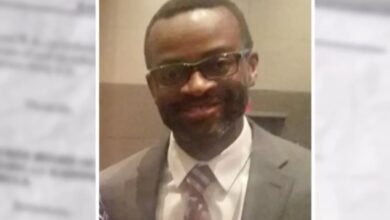
New UH Think Tank Benefits Gender and Sexual Minorities
The Houston research institute is the first of its kind in the region.

The Institute for Research on Women, Gender, and Sexuality (IRWGS) at the University of Houston (UH) aims to facilitate research that highlights overlooked issues within gender- and sexual-minority communities. The director of the institute, Dr. Elizabeth Gregory, says that community involvement and collaboration is one of the key features of IRWGS, which opened in April.
“Now that we’re officially titled, the next step is talking to groups in the community that work on different issues around gender and sexuality,” Gregory says. “Our next goal is to document [current issues] and do outreach to the community to spur dialogue around what could be improved within the community, based on what we know from [current] data.”
In addition to being the director of IRWGS, Gregory is also an English professor and director of the Women’s, Gender, and Sexuality Studies (WGSS) program at UH. In collaboration with the WGSS program, the institute has assembled around 25 faculty affiliates.
On November 4, IRWGS held its first public event entitled EnGendering Positive Change. The event provided a baseline of available data on Houston and marked the first official gathering between IRWGS and its potential collaborators. Heidi Hartmann, founder of Washington D.C.’s Institute for Women’s Policy Research, initiated in 1987, was the guest speaker for the event.
“We wanted to gain [Hartmann’s] insight, since we are starting a similar project with our institution,” Dr. Gregory says. The collaboration between institutions is just one of many types of partnerships that IRWGS hopes to pursue in its mission to extend conversations about gender- and sexual-minority issues.
Antonio D. Tillis, dean of the UH College of Liberal Arts and Social Sciences (CLASS), says the Institute could have collaborations that extend beyond the local level. “In concert with community-based support, the Institute has the potential to be not only a local and state repository and generator of knowledge and policy on the varied issues affecting its mission, but also a space to welcome national and international researchers on related topics,” Tillis says.
In addition to working with local, national, and international nonprofit and community organizations, IRWGS is developing a consortium to promote effective work-life policy. The consortium will invite businesses interested in optimizing their work-life policies to become more inclusive, particularly for women and women of color at the upper levels of management. The consortium is one of several initiatives that the Institute has in development to address community concerns about gender and sexual inequality.
The first report from IRWGS—a baseline data report that explores what’s out there and what’s known from the 2010 United States Census—will be released in the near future. The institute is also working on projects surrounding domestic violence, maternal mortality, employment inequality, immigration, and other gendered issues within the Houston community. Dr. Gregory says that while these issues are hard to track, given their precarious nature, initiating conversations with community members is critical to developing policy change.
“Talking about what we don’t know and why we don’t know it is an important part of the conversation,” Gregory says. “[For example], what is the economy of Houston—how much of it is dependent on unpaid labor in different ways, and why don’t people want to talk about it? Why are wages so low among Hispanic women in Houston, relative to the rest of the country? If you actually wanted to document these things, you’d have to start having different conversations from the ones you’ve had previously.”
Opening a dialogue around gender- and sexual-minority issues is not without its barriers, as Gregory notes there are difficulties in gathering data involving sensitive topics in vulnerable communities. By collaborating with local Houston groups in meaningful and considerate ways, the Institute hopes to ultimately benefit the communities it engages with.
“People don’t want to talk if they’re at risk, and you don’t want to document people in ways that put them at risk. That’s irresponsible,” says Dr. Gregory. “The question is, how can we envision [better circumstances] instead of just rejecting the status quo? What about the next phase—how do we get somewhere that isn’t an exploitative economic structure, but functions differently and benefits [these communities]? There are other models, and you can only get to them if you have those conversations.”
The Institute plans to utilize its research for policy innovation that benefits gender and sexual minorities in the Houston area. Research from IRWGS will be published in both academic and non-academic formats to increase accessibility to the public. These publications will include white papers—reports that inform authoritative bodies on particular issues and provide detailed proposals for these issues.
Advocates for the Institute note that the work being done at IRWGS could have benefits beyond Houston. “The new Institute creates a collaborative space for content experts in CLASS and at UH to further work on gender- and sexuality-related research to benefit the city of Houston and all of Texas,” says Tillis.
This sentiment is echoed by Paula Myrick Short, UH senior vice president for academic affairs and provost. “We are leading the region in exploring issues of intersectionality, and expect that the data developed through this Institute will affect conversations on the national level,” says Short.
Upcoming projects within the Institute plan to examine generational gaps regarding sexual identity. Dr. Gregory says there is existing research on the increase in LGBTQ-identifying individuals—research that indicates a roughly 6.8% increase between individuals born before 1945 and individuals born after 1980. Gregory hopes that by tracking both existing data and conducting new survey research of its own, IRWGS can become a collaborative force that facilitates a dialogue for Houstonians.
“We hope that people will engage,” Gregory says. “This is an institute that is speaking from Houston data to Houston, so we hope to be part of a dialogue that moves things forward.”
For more information about IRWGS, visit uh.edu/class/ws/research/
This article appears in the December 2019 edition of OutSmart magazine.











Comments